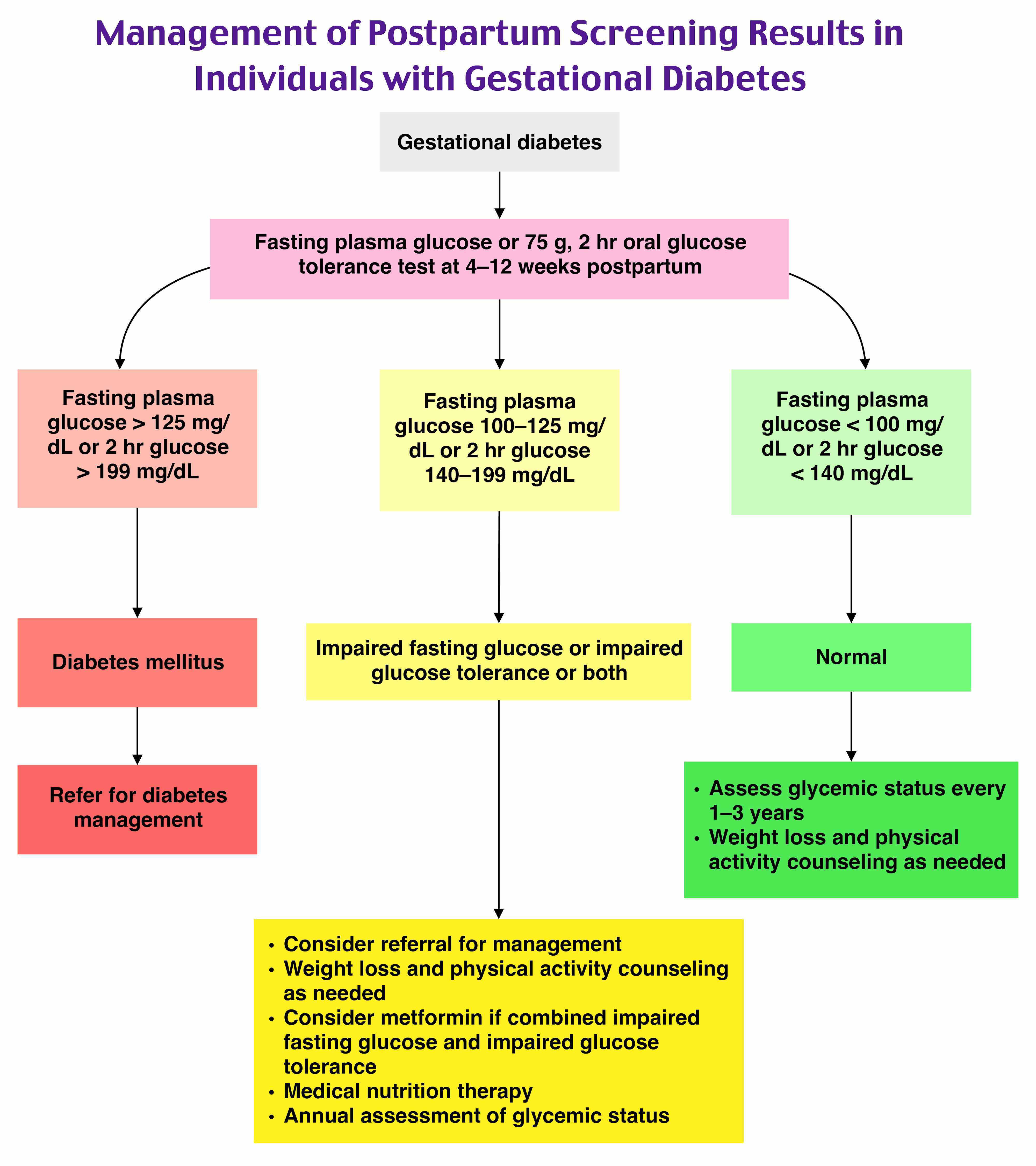D is the correct answer
Explanation:
Gestational diabetes mellitus affects approximately 6-7% of pregnancies in the United States, with prevalence varying in proportion to the prevalence of type 2 diabetes in the population. Gestational diabetes mellitus is associated with an increased risk of preeclampsia, operative delivery, and fetal complications including macrosomia, shoulder dystocia with associated birth injury, hyperbilirubinemia, and neonatal hypoglycemia. Up to 70% of patients with gestational diabetes will develop type 2 diabetes later in life. A 2-hour glucose tolerance test is recommended in the postpartum period for all patients with gestational diabetes in order to identify those with diabetes mellitus or impaired glucose metabolism postpartum. This is typically performed between 4–12 weeks postpartum and consists of a fasting plasma glucose level and a 2-hour plasma glucose level following a 75 g oral glucose load. A fasting plasma glucose level < 100 mg/dL and a 2-hour plasma glucose level < 140 mg/dL is consistent with normal fasting glucose and normal glucose tolerance. Patients with a history of gestational diabetes and normal glucose tolerance and fasting glucose postpartum should receive nutrition and weight loss counseling as needed and should undergo assessment of their glycemic status every 1–3 years.

Overt diabetes mellitus (A) is diagnosed by fasting glucose > 125 mg/dL or 2-hour plasma glucose level > 199 mg/dL. Patients diagnosed with diabetes mellitus postpartum should be referred to an endocrinologist or primary care physician for long-term management. Impaired fasting glucose (B) is diagnosed with a fasting plasma glucose level between 100 and 125 mg/dL. Impaired glucose tolerance (C) is diagnosed with a fasting plasma glucose of 100-125 mg/dL or a 2-hour plasma glucose level between 140 and 199 mg/dL. Patients with impaired fasting glucose, impaired glucose tolerance, or both should receive nutrition and weight loss counseling and undergo yearly assessment of glycemic status. Metformin may be considered with both impaired fasting glucose and impaired glucose tolerance.
P.S. Want to test your knowledge with more questions like this? Take advantage of 20% off the Rosh Review CREOG Qbank and get access to 2,000 CREOG-formatted questions with detailed explanations and images!

